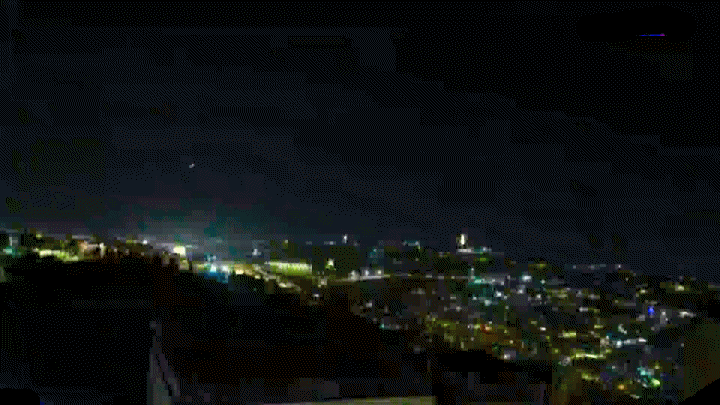IRAN'S ATTACK ON ISRAEL TOWARDSA REGIONAL EMBRACING ? | |
The Iranian consulate in Damascus on April 1, 2024 beheaded the high command of the Al-Quds Force, the branch of the Revolutionary Guards responsible for external operations, in Syria and Lebanon. At the same time, Iran's allies, Lebanese Hezbollah and Yemeni Houthi rebels have carried out anti-Israeli attacks, the former firing two rocket salvos within hours at the Israeli-occupied Golan, and the latter launching drones towards Israeli territory. The Israeli army claimed to have “foiled” the attack, intercepting “99% of the shots” thanks to its defense system and the help of its allies. According to its spokesperson, three hundred projectiles were launched against the Jewish state (one hundred and seventy drones, thirty cruise missiles and one hundred and ten ballistic missiles), of which "only a few fell on Israeli territory", notably at Nevatim Air Base in the Negev. The Israeli army has so far reported only one serious injury, a 7-year-old girl, hit in the head by shrapnel from a shell thrown to intercept an Iranian projectile. Iran estimated, Sunday morning, that the attack carried out overnight against Israel had "achieved all its objectives", through the voice of its head of the armed forces. "We have no intention of continuing this operation, but if the Zionist regime takes action against the Islamic Republic of Iran, whether on our soil or in the centers belonging to us in Syria or elsewhere, our next operation will be well more important than this,” warned General Mohammad Bagheri. US President Joe Biden said US forces helped shoot down "nearly all" of the drones and missiles fired by Iran at Israel. Tehran "sent a message to the United States warning that its bases would not be safe if it cooperated with Israel for possible next [Iranian] actions." Israel announced that it had intercepted, with the help of the United States and other allied countries including France and the United Kingdom, but also Jordan and Saudi Arabia, almost all of the 350 drones and missiles launched by Iran against its territory. The defensive operation was named "Iron Shield." The region on alert Jordan and Lebanon, Israel's neighbors, have announced the closure of their airspace, as has Iraq, which borders Iran. Also neighboring Israel, Egypt announced the placing of its air defenses on maximum alert and warned of a “risk of regional expansion of the conflict”. Saudi Arabia, for its part, called on all parties to “utmost restraint” An emergency meeting of the United Nations Security Council is to take place on Sunday, at the request of Israel. The head of the United Nations, Antonio Guterres, condemned the Iranian attack against the Jewish state on Saturday and denounced “a serious escalation”. This is in fact the first time since 1979 that the mullahs' regime has carried out a direct attack against its Israeli enemy. This airborne military attack by Iran against Israel, launched overnight from Saturday to Sunday, could transform the Gaza crisis into a full-scale war in the Middle East. “The Israeli-Iranian war is officially coming out of the shadows without us knowing for the moment with what intensity it will be waged openly,” deciphers L'Orient-Le Jour. The risk of regional conflagration “at its peak” ? for Tehran “The attack was a legitimate defensive measure following the Israeli action in Damascus and now 'the matter can be considered closed', declared the Iranian mission to the United Nations”. By launching a massive operation, which did not cause any casualties, against Israeli territory, Tehran hopes to have reestablished its deterrence without provoking an Israeli response. For Daniel Hagari, spokesperson for the Israeli army, this “direct attack launched from Iranian soil” is a “dangerous escalation”. The war cabinet gathered around Benyamin Netanyahu would study different options such as air strikes or the launch of drones on Iran, possibly on military bases or nuclear installations but more likely on Hezbollah in Lebanon . In any case, it seems clear that the Israeli response will be carried out after consultation with the United States, which has called for a G7 meeting for this Sunday. This meeting of G7 leaders should put pressure back on Iran, which continues to develop its nuclear program. | |
| Alize Marion for DayNewsWorld | |
 |
|




